THCA (tetrahydrocannabinolic acid) and CBD (cannabidiol), both derived from cannabis sativa, offer non-psychoactive alternatives to traditional sleep medication, with distinct benefits for improving sleep quality. THCA interacts with the endocannabinoid system's CB1 and CB2 receptors, potentially enhancing relaxation and regulating sleep cycles more directly than CBD. Unlike its counterpart, THCA can induce sedation at higher doses, making it a strong candidate for those struggling with sleep issues like insomnia or sleep apnea. CBD is known for its anti-anxiety properties, which can indirectly improve sleep quality. THCA may also influence sleep architecture, facilitating deeper stages of sleep including REM sleep. Individual responses to THCA and CBD vary, thus personal experimentation under professional guidance is advised to determine the most effective compound for one's specific sleep challenges. Research on both compounds is ongoing, with current evidence suggesting that both have merits for sleep improvement, but THCA may be particularly beneficial for its direct impact on sleep-wake cycles and anti-inflammatory effects. When considering THCA vs CBD for sleep, it's important to be aware of dosage, safety, legal considerations, and to consult with healthcare professionals. This comparison highlights the potential of both compounds in natural interventions for better sleep and general wellness.
Explore the potential of Indacloud thca flower as a natural aid for sleep enhancement. This article delves into how THCA, a non-psychoactive cannabinoid found in hemp, compares to CBD in promoting restful slumber. We’ll examine its therapeutic properties and their effects on various sleep disorders, offering practical advice on integrating THCA flower into your evening routine for optimal rest. Discover the science behind THCA vs CBD for sleep and learn about safe dosing practices to help you navigate better rest.
- Unveiling THCA Flower: A Natural Remedy for Sleep Enhancement
- THCA vs. CBD: Understanding Their Role in Sleep Quality
- The Therapeutic Properties of THCA and Its Impact on Sleep Disorders
- How to Incorporate THCA Flower into Your Nighttime Routine for Better Rest
- Dosing and Safety Considerations When Using THCA Flower for Sleep Improvement
Unveiling THCA Flower: A Natural Remedy for Sleep Enhancement
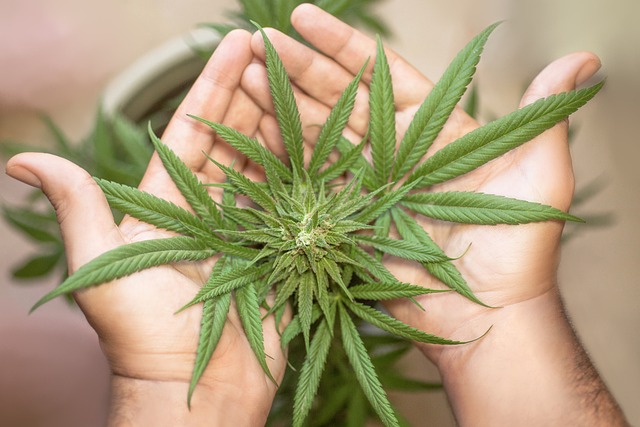
Unveiling THCA Flower as a Natural Remedy for Sleep Enhancement, one finds a promising alternative to traditional sleep aids. Tetrahydrocannabinolic acid (THCA), the raw form of THC found in cannabis sativa plants, has garnered attention for its potential therapeutic properties, particularly for those seeking improved sleep quality. Unlike its psychoactive counterpart, Delta-9-THC, THCA does not induce a ‘high’ but is believed to interact with the body’s endocannabinoid system, influencing sleep patterns and promoting relaxation.
Research suggests that THCA may offer benefits for sleep through its interaction with the CB1 and CB2 receptors. These receptors play a crucial role in regulating various physiological functions, including those related to sleep. THCA’s potential effects on these receptors could lead to sedative properties, making it a compelling candidate for individuals experiencing sleep disturbances. When comparing THCA to CBD (cannabidiol) for sleep enhancement, one must consider the distinct mechanisms of action each compound may have. While both are non-psychoactive and can be found in cannabis plants, THCA’s precursor status in the cannabinoid biosynthesis pathway sets it apart from CBD. Users may find that THCA flower, available in various strains and formats, offers a more potent sedative effect compared to CBD, which is known for its relaxing and anxiety-reducing properties. However, individual experiences with THCA and CBD can vary, emphasizing the importance of personal experimentation to determine the most effective option for one’s sleep needs.
THCA vs. CBD: Understanding Their Role in Sleep Quality
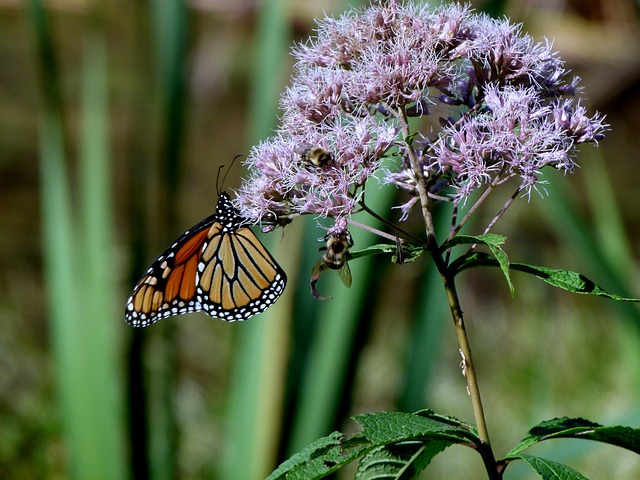
Cannabidiol (CBD) and Tetrahydrocannabinolic Acid (THCA) are two prominent compounds found in the cannabis plant that have garnered attention for their potential effects on sleep quality. While CBD is well-known for its therapeutic properties without the psychoactive effects typically associated with THC, THCA exists in its natural, non-psychoactive form prior to heating, which converts it into THC.
THCA and CBD interact with the body’s endocannabinoid system, influencing sleep patterns differently. Research suggests that THCA may have a biphasic effect on sleep; low doses could promote wakefulness and higher doses might induce sedation. This dual action could make THCA a versatile option for individuals seeking improved sleep quality depending on their specific needs throughout the day. On the other hand, CBD is often celebrated for its calming effects, which can help alleviate anxiety and stress—common culprits of poor sleep. Its ability to modulate REM sleep behavior suggests that it may enhance overall sleep architecture, potentially leading to more restorative sleep and better overall sleep quality.
When considering THCA vs. CBD for sleep, it’s essential to understand the nuances of how each compound works within the body. While both have unique properties that could influence sleep quality, individual responses will vary based on factors such as dosage, personal physiology, and specific sleep-related issues. Users should approach the use of these compounds with care, ideally under the guidance of a healthcare professional, to ensure they find the most beneficial form for their sleep needs.
The Therapeutic Properties of THCA and Its Impact on Sleep Disorders
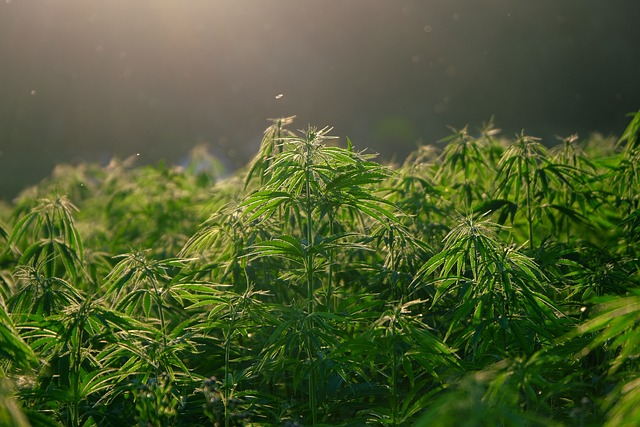
Delta-9-tetrahydrocannabinolic acid, or THCA, is a non-psychoactive compound found in cannabis plants that has been gaining attention for its potential therapeutic properties. Unlike its more famous counterpart, delta-9-THC, THCA does not induce psychoactive effects and is being studied for various health benefits, including its impact on sleep disorders. Preliminary research suggests that THCA may have a beneficial effect on sleep architecture by promoting more restorative stages of sleep, such as REM and deep sleep. This could be particularly advantageous for individuals suffering from conditions like insomnia or sleep apnea. In contrast to CBD, which is another prominent cannabinoid often discussed in the context of sleep improvement, THCA appears to interact with the body’s endocannabinoid system differently. While CBD is known for its relaxing and anti-anxiety effects, which can indirectly improve sleep quality, THCA may offer a more direct influence on the regulation of sleep-wake cycles due to its affinity for the CB1 and CB2 receptors. The distinction between THCA vs CBD for sleep is an area of ongoing research, with early findings indicating that THCA might be particularly effective for those experiencing sleep disturbances caused by pain or inflammation, given its anti-inflammatory properties. As such, THCA could represent a promising avenue for natural interventions aimed at improving sleep quality and promoting overall wellness.
How to Incorporate THCA Flower into Your Nighttime Routine for Better Rest
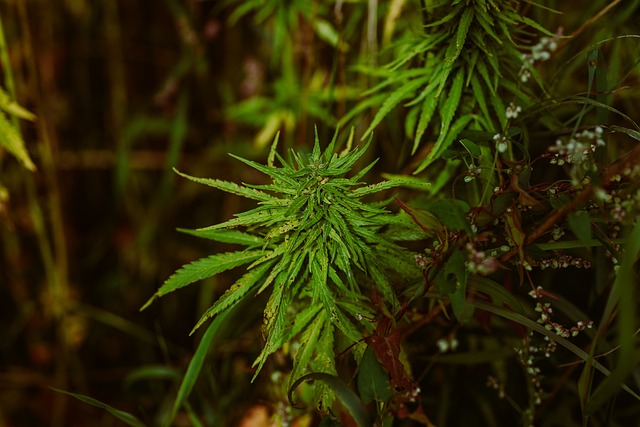
Infusing THCA flower into your nighttime routine can be a beneficial approach to enhance your rest and promote better sleep quality. Unlike its counterpart CBD, which primarily interacts with the CB1 and CB2 receptors of the endocannabinoid system in a non-intoxicating manner, THCA (Tetrahydrocannabinolic Acid) engages with these receptors as well as other neurotransmitter systems. This engagement can lead to a more profound sedative effect, which may be particularly helpful for those struggling with sleep disturbances.
To effectively incorporate THCA flower into your nighttime routine, consider dosing and consumption methods that align with your individual needs and body’s response. For instance, decarboxylating THCA to convert it into THC can enhance its psychoactive properties if desired. Consuming the flower in a tea or as a vapor an hour before bedtime can facilitate relaxation and ease you into a restful state. It’s also advisable to establish a consistent sleep schedule and create a calming environment, as these practices complement the use of THCA for optimal sleep benefits. Additionally, compare THCA vs CBD for sleep by experimenting with both to determine which works best for you, taking note of how each affects your sleep architecture, duration, and overall sleep quality. Always prioritize adherence to local laws and consult with a healthcare professional before integrating any cannabinoid products into your health regimen.
Dosing and Safety Considerations When Using THCA Flower for Sleep Improvement
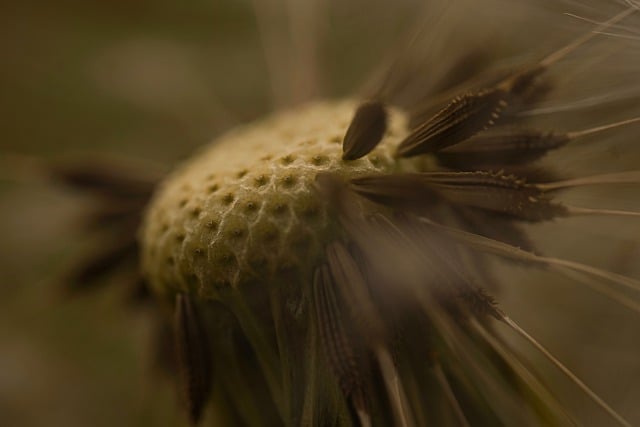
THCA, or tetrahydrocannabinolic acid, is a non-psychoactive cannabinoid found in the Cannabis sativa plant that has garnered attention for its potential therapeutic benefits, including its effects on sleep. When considering the use of THCA flower for sleep improvement, it’s crucial to understand proper dosing and safety considerations to maximize efficacy while minimizing risks. Unlike its counterpart CBD, THCA does not induce psychoactive effects, making it a preferable choice for individuals sensitive to THC or those who wish to avoid mind-altering substances.
Dosing with THCA flower should be approached with caution. While there is no universally agreed-upon dosage due to varying body chemistries and product potencies, starting low and slow is generally advisable. Users often begin with a small dose around 1-2 mg of THCA per serving, allowing the body time to adjust before potentially increasing the dosage incrementally. Consistent use at a comfortable dosage can lead to improved sleep quality by promoting relaxation and addressing sleep disturbances. Safety considerations include being aware of potential interactions with other medications and adhering to local and federal regulations regarding cannabis products. It’s also important to source THCA flowers from reputable suppliers to ensure the product’s purity and potency, as well as to avoid contaminants. As with any supplement, it is advisable to consult with a healthcare provider before incorporating THCA flower into your sleep routine, especially if you have underlying health conditions or are taking other medications.
In conclusion, the exploration of THCA flower’s benefits, particularly in enhancing sleep quality, presents a promising natural alternative. Distinguishing between THCA and CBD’s roles in promoting restful sleep underscores the importance of choosing the right cannabinoid for individual needs. The therapeutic properties of THCA show potential for addressing various sleep disorders, making it a noteworthy option for those seeking improvements in their sleep patterns. Integrating THCA flower into one’s nighttime routine can be a prudent step towards achieving better rest. However, careful attention to dosing and safety considerations is paramount when incorporating this cannabinoid into one’s health regimen. As with any wellness practice, personal experience will guide the most effective use of THCA flower for sleep enhancement. For those interested in exploring the benefits of THCA vs CBD for sleep, it’s a journey worth investigating, always prioritizing informed decision-making and adhering to recommended guidelines for optimal outcomes.
